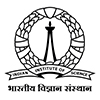Event
Plausible deniability seems like the ultimate get-out-of-jail-free card. But how can we make it work when it comes to digital information sent in a public network? Watch 2012 Turing Award Laureate, Shafi Goldwasser talk about “The Right to Deny.” Deniable encryption, defined by Canetti et al (Crypto 1997), suggests a method to achieve deniability by the sender of encrypted messages to overcome this problem. The idea is especially interesting in the context of electronic elections to eliminate the threat of vote buying after a vote has been cast.
She broadly covers two subjects:
1) With Agarwal and S. Mossel (Crypto21) we define and construct sender Deniable Fully Homomorphic Encryption with compact ciphertexts based on the Learning With Errors (LWE) polynomial hardness assumption. Deniable FHE enables storing encrypted data in the cloud to be processed securely without decryption, maintaining deniability of the encrypted data.
2) With Coladangelo and Vazirani (STOC22), we show a sender deniable encryption scheme where the encryption scheme is a quantum algorithm but the ciphertext is classical which is secure under the LWE polynomial hardness assumption. This scheme achieves for the first time simultaneously compactness, negligible deniability and polynomial encryption time under LWE. Furthermore, it is possible to extend the scheme so that coercion in an election cannot take place when the coercer is able to dictate all inputs to the deniable encryption algorithm even prior to encryption.
Speaker

Shafi Goldwasser
Turing Award laureate Director, Simons Institute for the Theory of Computing C. Lester Hogan Professor, Electrical Engineering & Computer Sciences University of California, Berkeley
Co-host


